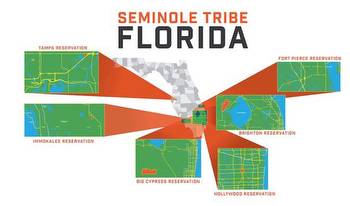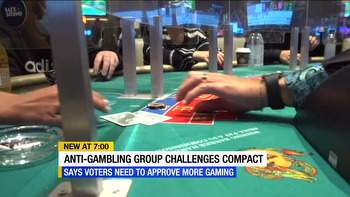Courts need to quash Seminole gambling deal

The feds have green-lighted the gambling deal between Florida and the Seminole Tribe. Now, the best chance of overturning this compact and restoring the state’s constitutional order rests with the courts.
After a 45-day review, the Bureau of Indian Affairs, which has the say over gambling deals between states and tribes, allowed the compact to go forward without explicitly approving it.
And yet, the approval also did not explicitly or implicitly address the hard truth that the deal between Florida and the Seminole Tribe has every appearance of violating the Florida Constitution. That’s because the expanded casino-type gambling authorized by the compact — sports betting, craps, roulette — wasn’t approved through a state constitutional amendment.
The federal bureau may have decided that fact was too inconvenient, too messy. So they ignored it.
The new games were approved by the state Legislature and signed by Gov. Ron DeSantis earlier this year in open defiance of a constitutional amendment passed in 2018 that says voters must approve new casino games, not lawmakers.
Seventy-one percent of the state’s voters decided the only way new casino games should be approved in the future is if they’re authorized through a citizen-led state constitutional amendment.
If you want craps, sports betting or roulette in Florida, you need an amendment that gets on the ballot through a petition drive — not through a vote of the state Legislature — and then gets more than 60% of the votes cast.
It’s not complicated, and it’s not optional.
But the state never had any intention of adhering to such constitutional niceties, which should come as no surprise. The last legislative session was an orgy of unconstitutional lawmaking, much of which has already been halted or overturned by the courts.
Earlier this summer, a federal court stopped Florida from implementing a law that attacked the First Amendment though a crackdown on social media companies.
Earlier this month, in another First Amendment case, the courts struck down a law that limited how much money can be donated to petition-gathering campaigns to get citizen-led amendments on the ballot.
And over the weekend a federal judge sided with Norwegian Cruise Line and said the state’s ban on so-called “vaccine passports” — requiring proof of vaccination — probably infringes on the company’s First Amendment rights.
Cruise lines like Norwegian want to ensure passengers are vaccinated so ships don’t turn into floating hospitals like they did last year. They want passengers to have fun, not die. Seems reasonable to us, but not to the state.
Next up in the legal dunk tank should be the gambling deal. The anti-gambling group No Casinos, which led the successful amendment campaign that the Legislature ignored, seems the most likely plaintiff.
We hope they come out with legal briefs blazing, and soon. Politicians who don’t respect the will of the votes need to be taught a lesson through the courts, although there seems to be no limit to the arrogance of elected officials.
Our opposition to the gambling deal has nothing to do with this editorial board’s past, longtime opposition to casino gambling. We stated in a separate editorial that we understand society and circumstances change. Gambling is far more mainstream than it was 20 years ago.
What’s so galling is the Legislature working outside its legal authority to authorize gambling.
Contrast that with the various efforts underway by other gambling proponents to operate within the constitution.
Three separate political committees are doing the hard work of gathering petitions to get statewide sports betting and approved in 2022 through constitutional amendments. We may not end up liking what they’re proposing, but that’s how voters said they wanted the process to work in 2018.
There was not a constitutional carve-out for the Legislature. Since the feds took a pass, it’s up to the courts to remind them of that fact.
Editorials are the opinion of the Orlando Sentinel Editorial Board and are written by one of its members or a designee. The editorial board consists of Opinion Editor Mike Lafferty, Jennifer A. Marcial Ocasio, Jay Reddick and Editor-in-Chief Julie Anderson. Send emails to insight@orlandosentinel.com.
































